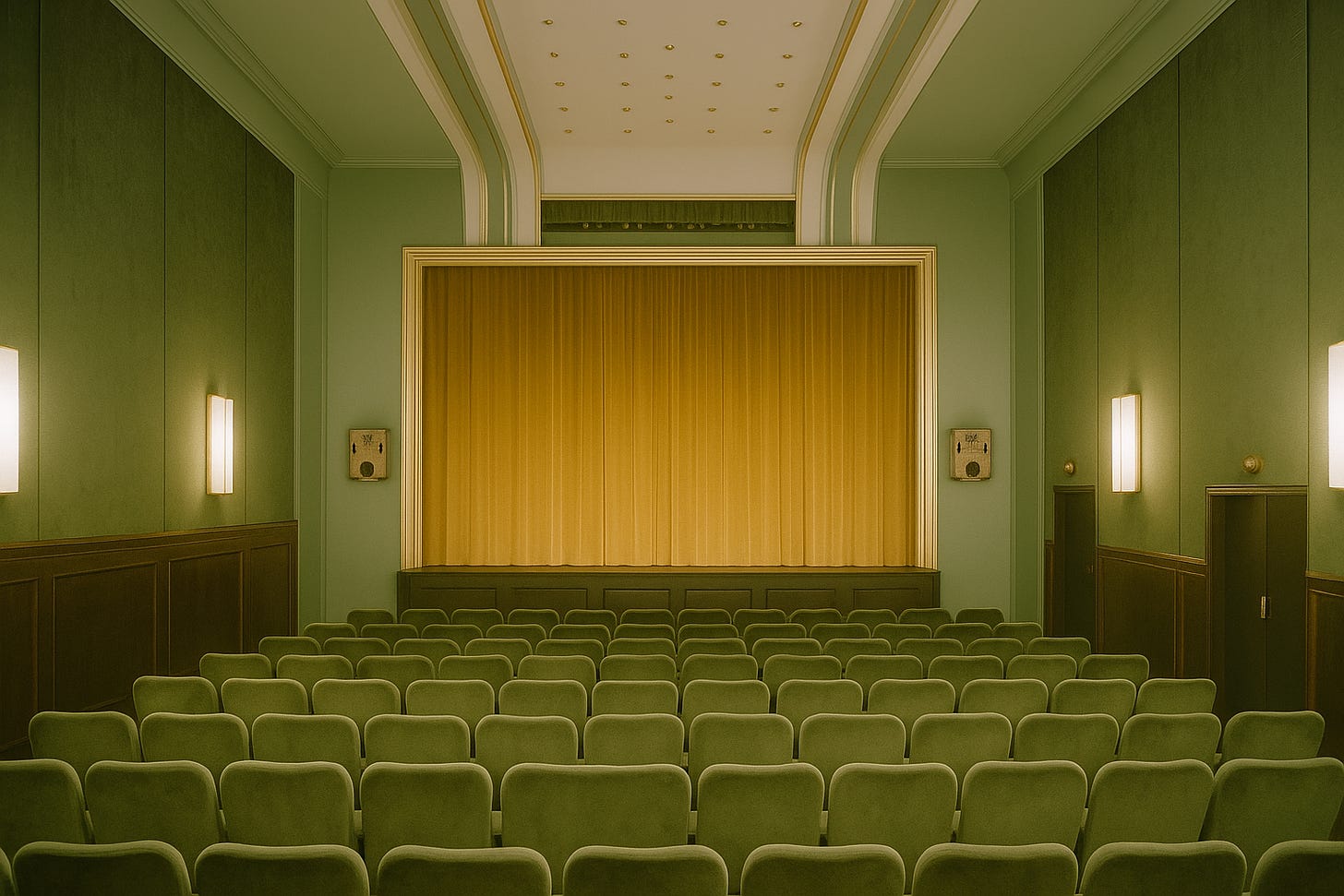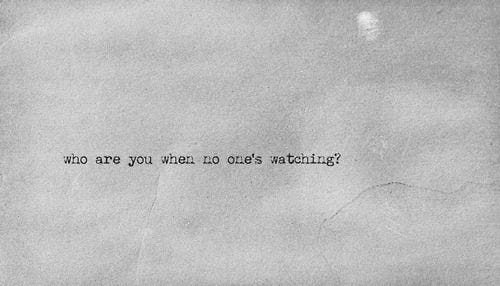the audience of none: no one is watching you
this is good news—this is freedom and liberation
The truth I'm about to share with you is so simple it feels almost insulting: no one is really watching. Not the way we think they are. Not the way we've been performing our entire lives, curating each gesture and word as if we're the stars of some invisible documentary about How to Be a Proper Human Being.
I know this sounds either obvious or impossible, depending on how deeply you've internalized the weight of other people's eyes. For years, I carried around this phantom audience, these invisible critics who seemed to have veto power over my every move. Every stumbled word felt like a mark against me in some cosmic grade book. Every social misstep seemed to echo in a vast amphitheater of judgment.
The realization that this audience was largely imaginary should have been crushing. All those years of careful choreography—learning to laugh at jokes I didn't find funny, crafting the perfect response to "How are you?" when the honest answer was always more complicated than anyone wanted to hear. The exhausting energy I'd poured into being palatable, presentable, normal. What was it all for?
But instead of crushing me, it felt like someone had just told me I could fly.
I think about this often now, this strange mathematics of attention. We live as if we're under constant surveillance, as if every stranger on the street is taking notes on our performance. She wore that shirt two days in a row. He stumbled over that word. Did you see the way she laughed too loudly at her own joke? We carry this phantom jury with us everywhere, these invisible judges whose opinions we've somehow decided matter more than our own comfort, our own joy, our own authenticity.
The ancient Stoics understood something about this that we've forgotten. Epictetus, himself a former slave who knew something about the weight of others' expectations, taught that we suffer more in imagination than in reality. Marcus Aurelius, writing to himself in what would become his Meditations, reminded his future self again and again that other people's opinions were outside his control—and therefore, ultimately, not his concern.




